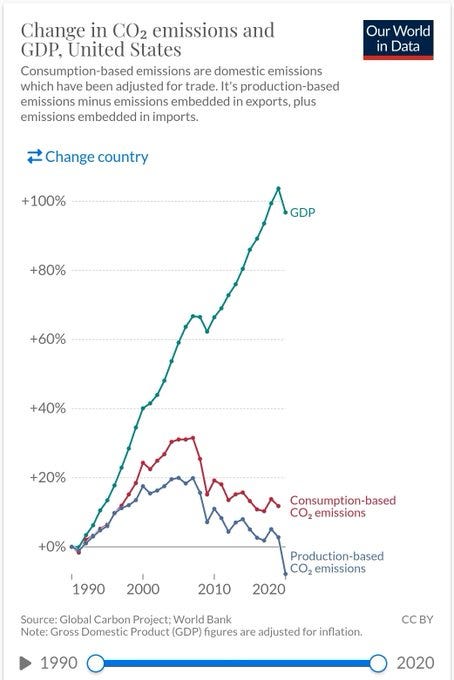Transmission #39: Art is for Evil, Educational Snobbery, Measuring ESG and We Don't Make 'em Like We Used To.
Design, ideas and other flotsam
Hello. Welcome.
This is Transmissions by me, Marty Brown.
What is Transmissions? It’s an ongoing, (usually) fortnightly newsletter that collates some of the more interesting stories, links, quotes and other curios that float my way.
If you’re new here, then sign up now to get more of these in your inbox, and don’t forget to tell your friends!
Design
Art Is for Seeing Evil
Agnes Callard
I think the philospher Agnes Callard thinks some very interesting thoughts, and this is no exception. Here she writes, somewhat as a provocation I think, that art, simply, is for seeing evil in the world. That the best art is about exploring the shadow side of what it means to be human. “I can name many works of fiction in which barely anything good happens,” she writes, “but I can’t imagine a novel in which barely anything bad happens.”
There is a certain noble lie that we tell students about art… The lie is that art is a vehicle for personal moral edification or social progress, that art aims at empathy and happiness and world peace and justice and democracy and the brotherhood of man. But those are the goods of friendship, or education, or politics, or religion—not of art. The point of art is not improved living; the point of art is precisely not to be boxed in by the sometimes exhausting and always blinkered project of leading a life. When art does transparently aim at moral guidance or social progress we dismiss it as dogmatic, pedantic and servile.
Ideas
Some Students Are Smarter Than Others (and That’s OK)
Fredrik deBoer, The Chronicle of Higher Education
A challenging article about the value of higher education – that in some ways its duty to promote a kind of inequality, not reduce it. DeBoer that argues that not only are some people naturally academically superior to others, but that to pretend otherwise is a pipe dream.
For whatever reason, different people end up with profoundly different academic abilities. That, I hope, is indisputable. Not everyone is equally good at various academic tasks. Not everyone has the same ability to do calculus; not everyone has the same grasp of grammar; not everyone has memorized the same facts. Even if you reject the idea that there is any inherent difference in ability, you must accept that there are summative differences in ability
It’s been argued that the value of college stems largely from its function as a screening mechanism. By instituting admissions criteria like standardized tests, grade requirements, and the ability to pay, the thinking goes, college acts as a sieve, allowing employers to pick through those who have the underlying academic talent and soft skills, like time management, needed to succeed at work
The upshot, says deBoer, is that academic standards must be maintained in order to do this - because a college system that ceases to ensure adequate education is one that is not only failing the students, but failing society.
I’ve often said that our national conversation calls for colleges to chase two contradictory goals at once — higher standards, such as when people complain about grade inflation, and higher graduation rates.
Measure less, but better
The Economist
As Tariq Fancy exposed to some fanfare last year, although ESG investing might sound like a great idea (make money and save the world), it’s sadly not that simple, and what sounds like a great idea is, largely, not working.
Here The Economist sinks the boot in too. The challenge is in measurement. The tangle of measuring what good Environmental, Social and Governance practices are is just too difficult, and we should focus on measuring simpler metrics, and measure them with greater consistency and oversight. Let’s start with emissions. And start now.
Chart of the Week

Other
💻 A visual history of graphical user interfaces, from the Xero Alto to Mac Snow Leopard. Link
👨🏻🔬 A sobering note of buyers regret from a physics graduate student, who poured years into a pursuit without really thinking about why. Link
🙀 The Jonathon Haidt vs social media war continues with a response to Meta’s response to this fantastic article. TLDR: social media is probably ruining a lot of things. Link
👵🏻 The US president is very old. The average age of CEOs has increased by 14 years… over the last 14 years. What’s going on with this oldness? Link
🧑⚖️ Speaking of old, Henry Kissinger at 99 is saying we don’t make leaders like we used to. Looking around at the sorry state of modern politics, he may have a point. Link
🦇 A blow to the lab-leak hypothesis: a new study ties the Wuhan market to two separate strains of early COVID. Link
That’s all folks! See you next time!




